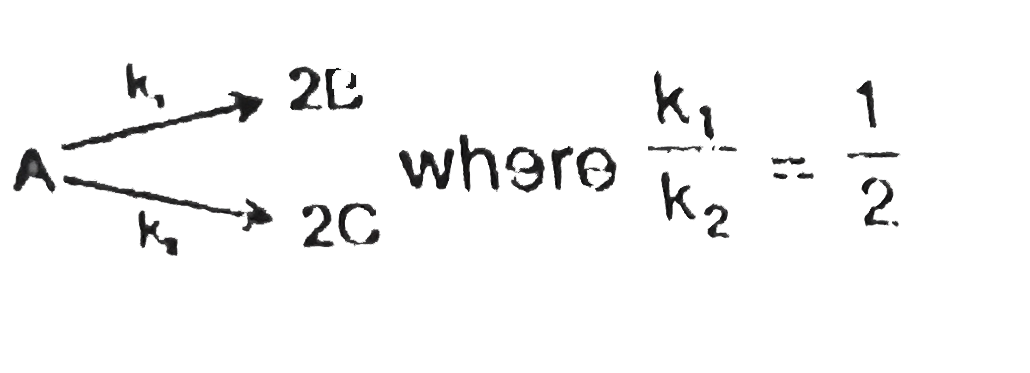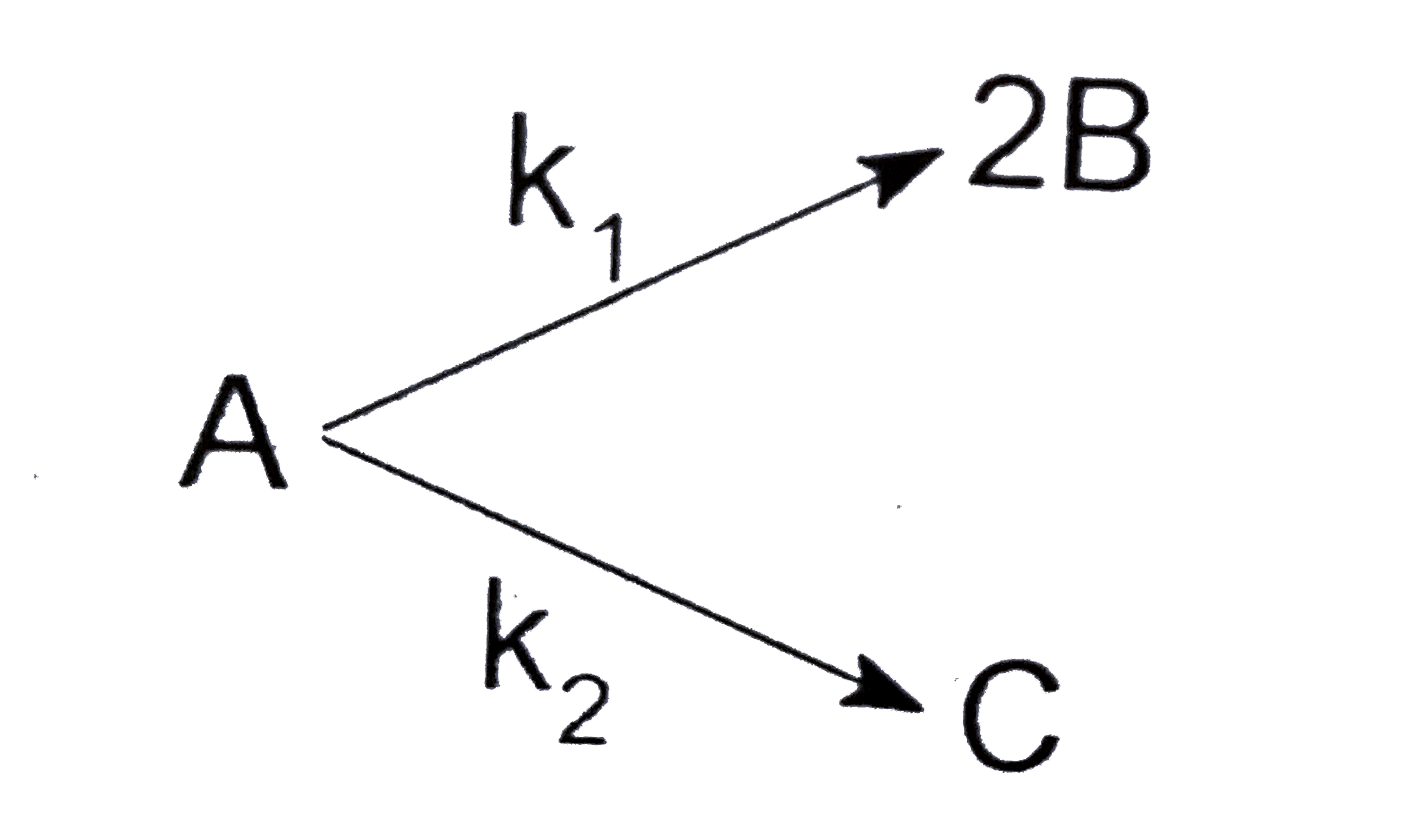For a hypotherical elementary reaction  where k1k2=12
where k1k2=12
Initailly only 2 moles of A are present.
Number of moles of B are:
2
1
0.666
0.333
The correct Answer is:C
Mole of B =21+2=0.666
Topper's Solved these Questions
Similar Questions
For a hypotherical elementary reaction
 where k1k2=12
where k1k2=12
Initailly only 2 moles of A are present.
The sum of mole of (B) are ( C) at end of reaction is :
View SolutionFor a hypotherical elementary reaction
 where k1k2=12
where k1k2=12
Initailly only 2 moles of A are present.
The total number of moles A,B and C at the end of 50% reaction are :
View Solution
Knowledge Check
For a hypotherical elementary reaction
 where k1k2=12
where k1k2=12
Initailly only 2 moles of A are present.
The sum of mole of (B) are ( C) is :A2B3C1D4For a hypotherical elementary reaction
 where k1k2=12
where k1k2=12
Initailly only 2 moles of A are present.
The total number of moles A,B and C at the end of 50% reaction are :A2B3C5DNoneFor given hypothetical elementary parallel reaction,

Intially only 2 moles of A are present. The total no. of moles of A, B and C at the end of 75% reaction are:A2B3C4D3.5
Rate law for the elementary reaction 2AB→k1A2+B2 will be:
View SolutionFor the following elementary first order reaction:

If k2=2k1, then % of B in overall product is:
View SolutionRate law for the elementary reaction 2AB→k1A2+B2 will be:
View SolutionFor the following elementary first order reaction:

If k2=2k1, then % of B in overall product is:
View SolutionFor the reaction AK1⇐===⇒K2B, if 'a' is the initial concentration of A and n is the number of moles of A reacting if initially no B was present then :
View Solution
